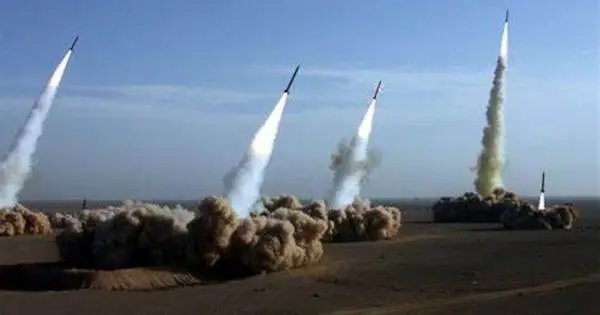The use of nuclear weapons in hostilities is referred to as nuclear warfare. It is sometimes referred to as “atomic warfare” and is a planned military operation or political maneuver that makes use of nuclear weapons. The nuclear reactions that release energy during fission or a mix of fission and fusion reactions are the source of the destructive power of these weapons.
Unlike conventional warfare, which can cause destruction over a longer period of time and have long-lasting radiological effects, nuclear warfare uses weapons of mass destruction. Because of the enormous energy released and the intense heat, radiation, and shockwaves produced, using nuclear weapons can have disastrous effects.
A significant nuclear exchange could result in secondary effects like “nuclear winter,” “nuclear famine,” and societal collapse in addition to long-term effects from the fallout that would be released. With Cold War-era stockpiles or even with the current smaller stockpiles, a worldwide thermonuclear war could result in a number of outcomes, including the extinction of the human species.
Types of Nuclear Weapons:
- Fission Bombs (Atomic Bombs): These weapons rely on the fission of heavy atomic nuclei, such as uranium-235 or plutonium-239.
- Thermonuclear Bombs (Hydrogen Bombs): These are more powerful and use a staged process involving both fission and fusion reactions.
Effects of Nuclear Weapons:
- Blast: The explosion creates a powerful shockwave that can cause extensive damage to buildings and infrastructure.
- Heat: The intense heat generated can ignite fires over a wide area.
- Radiation: Nuclear explosions release ionizing radiation, causing immediate and long-term health effects.
- Electromagnetic Pulse (EMP): The detonation can produce EMP, potentially damaging electronic equipment over a large area.
International Agreements
An international agreement known as the Treaty on the Non-Proliferation of Nuclear Weapons (NPT) was created to stop the spread of nuclear weapons and to advance the peaceful uses of nuclear energy. A few nations, such as the US and Russia, have signed arms control treaties to reduce the quantity of nuclear weapons in use.
Because of the devastating and indiscriminate effects that nuclear weapons have on civilian populations, the use of these weapons raises serious ethical and moral questions. Concerns about nuclear war pose a threat to international security, and initiatives are being made to encourage disarmament, stop the spread of nuclear weapons, and resolve regional disputes that might turn into nuclear war.
















